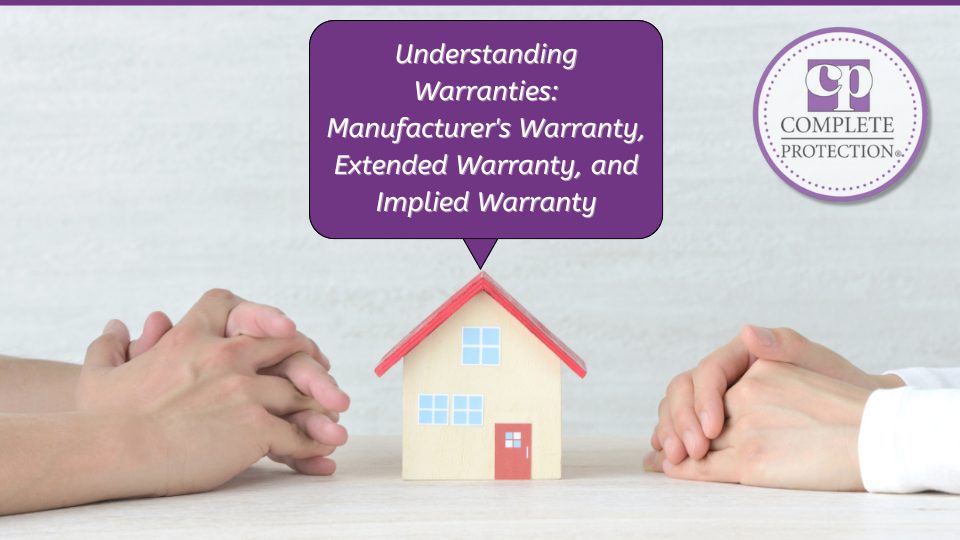Understanding Warranties: Manufacturer’s Warranty, Extended Warranty, and Implied Warranty

Warranties are assurances provided by manufacturers or sellers regarding the condition and performance of a product. They play a crucial role in consumer protection, offering peace of mind and recourse if a product fails to meet expectations. Understanding the different types of warranties—manufacturer's warranty, extended warranty, and implied warranty—can help consumers make informed decisions and know their rights.
Manufacturer's Warranty
A manufacturer's warranty, also known as a factory warranty, is a guarantee provided by the product's manufacturer. It typically covers defects in materials and workmanship for a specified period after the purchase. The terms and duration of a manufacturer's warranty vary depending on the product and manufacturer.
Key Features:
- Coverage: Generally includes repairs or replacements due to defects in materials or workmanship. It does not cover damage caused by misuse, accidents, or unauthorized modifications.
- Duration: Often lasts for a fixed period, such as one year, or a specified mileage for vehicles.
- Cost: Included in the purchase price of the product.
- Claim Process: Consumers usually need to provide proof of purchase and sometimes register the product to activate the warranty.
Extended Warranty
An extended warranty, also known as a service contract or protection plan, is an optional warranty that extends the coverage period beyond the manufacturer's warranty. It is typically purchased separately and can be offered by the manufacturer, retailer, or a third-party provider.
Key Features:
- Coverage: Can vary widely but generally includes everything covered under the manufacturer's warranty and may offer additional benefits like accidental damage protection, routine maintenance, or tech support.
- Duration: Extends the coverage for a longer period, which can range from a few additional years to the product's expected lifespan.
- Cost: Requires an additional payment, which can be a one-time fee or paid in installments.
- Claim Process: Similar to the manufacturer's warranty, but claims may need to be made through the extended warranty provider.
Implied Warranty
Implied warranties are unspoken, unwritten guarantees that arise from the nature of the transaction and the inherent understanding that the product will perform as expected. There are two main types of implied warranties: the warranty of merchantability and the warranty of fitness for a particular purpose.
Key Features:
- Warranty of Merchantability: Implies that the product will work as expected for its intended purpose. For example, a toaster should toast bread.
- Warranty of Fitness for a Particular Purpose: Arises when a seller knows that a buyer intends to use the product for a specific purpose and the buyer relies on the seller’s expertise to select the appropriate product.
- Duration: Implied warranties generally last for a reasonable period, determined by the nature of the product and its expected lifespan.
- Legal Basis: Implied warranties are governed by laws such as the Uniform Commercial Code (UCC) in the United States and are automatically in effect with the purchase of most consumer goods.
Conclusion
Understanding the differences between a manufacturer's warranty, an extended warranty, and an implied warranty can empower consumers to make better purchasing decisions and know their rights if issues arise. While a manufacturer's warranty provides initial coverage, an extended warranty can offer prolonged protection. Implied warranties, on the other hand, ensure basic consumer rights and protections are upheld. When considering a purchase, it's essential to review the warranty terms and consider whether additional protection is worth the investment. Check out our BLOG for more valuable information about warranties!
